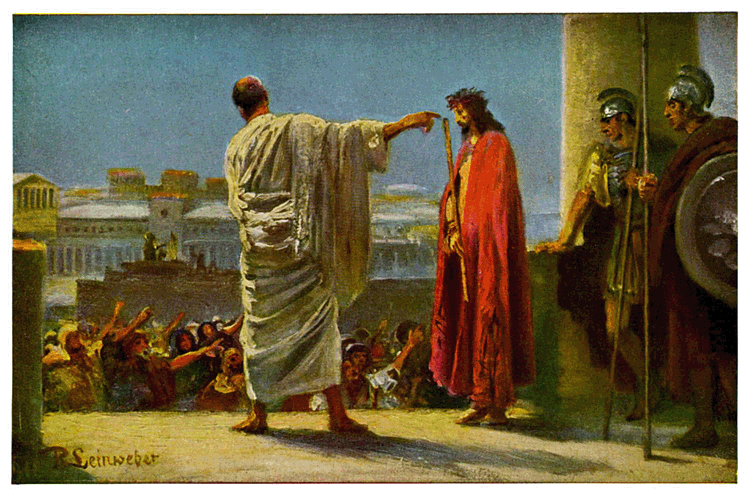
No one puts a piece of unshrunk cloth on an old garment; for the patch pulls away from the garment, and the tear is made worse. Nor do they put new wine into old wineskins, or else the wineskins break, the wine is spilled, and the wineskins are ruined. But they put new wine into new wineskins, and both are preserved.” (Matt 9:16–17)
Matthew 9:17, New [Gr. agnaphos] patch…old [Gr. palaios] garment. A brief dive into the Greek words for new and old is instructive and yields some rich treasures that will be lost on most modern persons without a proper explanation.
The word new (as in “new patch”) is the Greek word agnaphos referring to the work of a fuller whose job it was to prepare cloth for garment making by first carding it. So what did a fuller specifically do? The fibers (whether of wool, cotton, flax or some other natural fibrous material) must first be smoothed and aligned by carding with a wire toothed brush thus disentangling the fibers and washed, which prepares the fibers for spinning.
Next, the Greek word for old (as in “old garment”) is palaios meaning “antique, that is, not recent, worn out.” What an apt description of a carnally oriented and spiritually unregenerate person before coming to the Messiah! They are a tangled and uncarded mess spiritually, as well as being old and worn out.
Each of us is like old garments that need patching. In order to receive the new patches of Yeshua’s gospel, our old, carnal man must be carded (disentangled and set in order), washed (baptized) and shrunk in size. That is, we must be divested of our innate pride, humbled and brought down to size at the foot of the cross. Further the carnal and sinful man needs to be shrunk in size and yield to the larger regenerative and transforming power of YHVH’s Spirit. In the next parable of the new and old wineskins, Yeshua alludes to this second work of the Spirit that needs to occur in a new believer after they have been carded. It is only through allowing these processes to occur in our lives that we can qualify to be potential candidates to be the bride of Yeshua (v. 15).
New wine…new wineskins. The analogy of the new wine and new wineskins is similar but different than that of the new patch on the old clothes. Both have to do with regeneration of something that is old, but each parabolic analogy intends a different spiritual truth because each a involves different process that with a different objectives. Sadly the phrase,“New wine into old wineskins…new wine into new wineskins” (the translation as found in most of our English Bibles) is a muddy one a misses the deeper meaning from the Koine Greek, and therefore doesn’t give us the proper understanding of Yeshua’s words. Here is the verse from Matthew 9:17 with the Greek words following in brackets:
Neither do men put new [neos] wine into old bottles: else the bottles break, and the wine runneth out, and the bottles perish: but they put new [neos] wine into new [kainos] bottles, and both are preserved. (KJV
In English, the word new can mean “brand new, never been used before” or it can mean “new to you, although it may have previously belonged to someone else.” It can also mean “renewed, reconditioned new.” In Koine Greek, there are two words for our one word new. They are neos and kainos.
The Greek word neos means “new as in brand new.” The Greek word kainos means “new in the sense that something is renewed or reconditioned,” so it’s not brand new.
Both Mark and Luke in their accounts use kainos in the same way Matthew does in his (Mark 2:22; Luke 5:38).
This verse would have been better translated as:
Neither do men put new [neos] wine into old bottles: else the bottles break, and the wine runneth out, and the bottles perish: but they put new [neos] wine into reconditioned [kainos] bottles, and both are preserved.
Stern captures this meaning in his Complete Jewish Bible where he translates kainos as “freshly prepared wineskins.” J. P. Green in his Bible translates kainos as “fresh.”
Interestingly, Luke adds a statement that the other two Gospel writers (see Matt 9:17 and Mark 2:22) omit:
And no one, having drunk the old wine, immediately desires new; for he says, ‘”The old is better.” (Luke 5:39)
What is the meaning of this? One commentator states that in ancient times, aged wine (i.e., being fully fermented, and thus having a higher alcohol content) was generally preferred over new wine (not fully fermented, thus having a lower alcohol content). He suggests that Yeshua is probably indicating why the religious people were objecting to the joy of Yeshua’s disciples (verse 33): because it was something new (The IVP Bible Background Commentary, p. 203, by Craig Keener). So depending on the context of Yeshua’s usage of the new/old wine analogy, sometimes the new is better, sometimes the old is better.
Also consider this. New wine must be put into newly refurbished leather wineskins. Why is this? Old leather gets dry and cracked like a pair of old leather boots that needs to be oiled occasionally to keep the leather pliable. Similarly, if one is to qualify to be the bride of Yeshua (v. 15), then one must receive the new wine of Yeshua’s teachings, where mercy (i.e., the weightier matters of the Torah [i.e., justice, mercy and faith from Matt 23:23) is more important than sacrifice (i.e., a letter-of-the-law, legalistic obedience to the Torah while missing its heart and spirit). The only way for an old wineskin to be newly refurbished and thus able to contain the new wine is to treated with oil (likely olive oil) to made supple. Similarly, a person (on old wineskin) must be immersed in the Holy Spirit to become the supple or teachably pliable vessel necessary to receive the new wine of Yeshua’s teachings. The evidence that a person has become a newly refurbished wineskin is the manifestation of the fruit of the Spirit in their life. This is something that those who are legalistically bound to a letter-of-the-law obedience religious system will find hard to manifest because of their hard, rigid, exclusivistic, judgmental and unloving view of and demeanor toward others.






